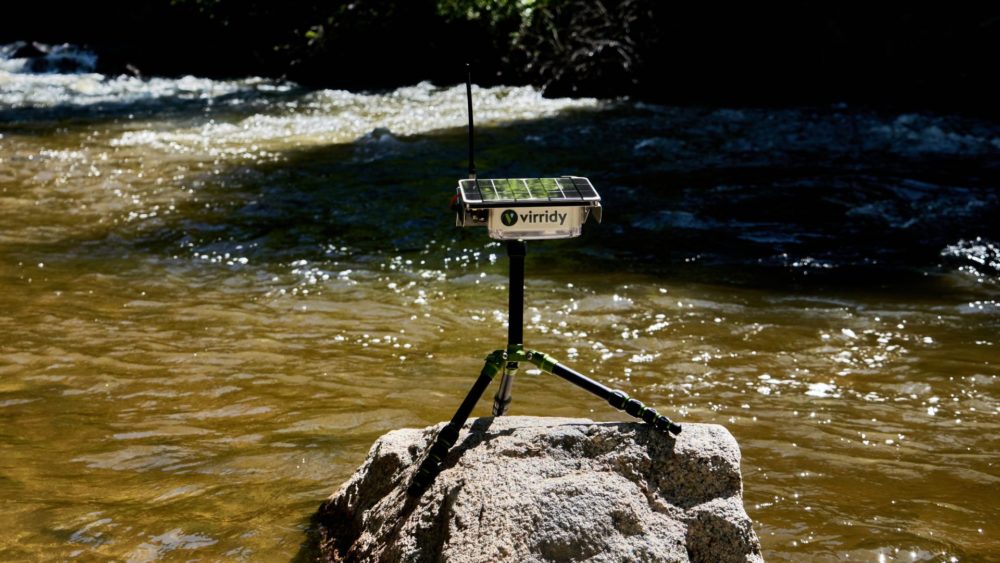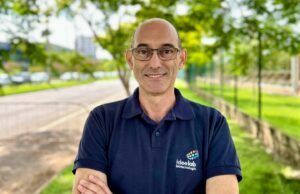Virridy (formerly Sweetsense) a developer of satellite-powered sensors that monitors environmental resources in Africa, has partnered with the Millennium Water Alliance (MWA) and the Mortenson Center in Global Engineering and Resilience at the University of Colorado Boulder to ensure that people facing the first impacts of climate change have access to reliable and safe drinking water.
The partnership claims to already support close to five million people’s water supplies in Ethiopia and Kenya.
It will expand over the next 12 months into other countries in East Africa like the Democratic Republic of Congo, using local networks and partners to support and maintain its water monitors.
The partnership combines the University of Colorado Boulder’s specialization and technical capabilities to improve water services, Virridy’s technologies and climate finance business model, and MWA’s on-the-ground partnerships with water service providers and communities in Kenya and Ethiopia.
It came from the MWA ecosystem, of which the University of Colorado Boulder is a member. The MWA is a global alliance of humanitarian, research and business organizations that has headquarters in Washington, DC and Nairobi, Kenya.
Earlier this year, Virridy raised $5.5 million in Series A funding round to accelerate the development of its sensors.
The partnership’s mandate
Climate change is driving increasingly severe and pervasive droughts all over the world.
According to the UN, as many as 20 million people in East Africa currently face famine because of drought resulting from delayed rains.
While startups like Virridy work with international donors and national governments who pay to install pumps on boreholes in arid settings like Kenya and Ethiopia, local communities do not have the funding to maintain them.
The three organizations are therefore combining innovative water monitoring technologies with expertise in carbon finance and water supply services to eliminate this funding challenge and deliver consistent water supplies beginning in rural communities in Ethiopia and Kenya
Introducing a funding model based on climate finance.
Together, the three entities created the Drought Resilience Impact Platform (DRIP). This is a system that monitors water security with satellite-connected sensors, creates actionable drought forecasts, and identifies broken water pumps and areas of water demand.
DRIP is supported by USAID, NASA and the Swiss Agency for Development and Cooperation, which avail these systems to local water service providers in arid areas.
The partnership will be adding water treatments and introducing a climate finance-based model to where their DRIP systems are located.
Under the Gold Standard voluntary carbon credit registry, organizations can earn carbon credits by reducing the demand to boil drinking water with firewood or fossil fuels. With the introduction of water treatment, communities bypass the need to boil water. Local water service providers can therefore earn carbon credits which are calculated based both on saving actual and demanded energy (which would have been used to boil water) and replacing dirty water with clean water.
“The DRIP system, combined with carbon credit revenue, will allow the MWA and its members to partner with local communities to identify and repair water systems. Local repair organizations will be paid to ensure water is always available,” says Styvers Kathuni, MWA Kenya program director and country representative for Kenya.
Keith Wright, executive director at MWA, tells AFN that this approach will radically scale available finance for community water access.
“We’ve been thinking how we could use our networks and expertise to harness the global market to serve communities and channel revenue from the carbon market into local water service providers and communities rather than just relying on grants,” he says.
“For so long donors have given money to provide these water services and that’s not a bad thing. This [carbon credits] actually connects these services to the global market in a way that revenue actually flows based on the functioning. This is where the water providers can actually control their own destiny.”
Impact
The partnership wants to demonstrate that revenue can flow to water service providers, changing the whole financial model for how water is provided to last-mile communities.
“We want to show that we can provide better services to communities with an entirely different financial model that can really benefit them in the long term,” says Wright.
Kathuni also tells AFN that earning revenue through carbon credits will help governments free up their budgets to channel financing to other needed infrastructure.
Virridy’s leadership team was the first to originate and scale carbon credit-financed water supplies, demonstrating the first programs in Rwanda and Kenya in 2007 and 2010.
These programs went on to reach millions of people with clean water, and generated millions of carbon credits to pay for ongoing water supply costs and to repay investors, according to Virridy.
“This kind of public–private partnership isn’t a quick or easy fix to our water insecurity issues. But the effects of climate change are certain to intensify. Carbon markets should be part of the answer,” says Virridy’s founder and CEO, Evan Thomas.





